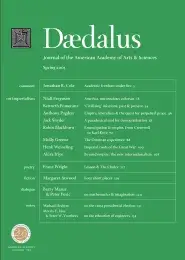Beyond imperialism: the new internationalism
Much has been said about the United States having become, or having to become, an empire. To provide the chaotic world, especially in the wake of the Cold War, with some semblance of law and order, it has been asserted, the international community needs a new world order, a global empire, a superpower that can speak on behalf of all countries and all peoples, a power willing to use its military and economic resources to protect all against the forces of violence and anarchy. There is only one nation that can fulfill the task: the United States. In the twenty-first century, therefore, humankind may be forced to choose between continued disorder and imperial governance instituted by the United States.
So one side of the argument goes. But others dispute this contention, insisting that for practical or moral reasons the United States should never take on an imperial role. A historian can only contribute to this debate by historicizing it–that is, by noting what empires and imperialism have meant in the past, and by examining what these might mean in today’s world. This essay seeks to put empires and imperialism in the context of modern world affairs and to discuss how they contributed, or failed to contribute, to stabilizing international order.
It cannot be denied that there was a time when empires provided some sort of world order. In the first half of the nineteenth century, the globe was dotted by huge territorial empires, including the Ottoman, Persian, Mughal (Mogul), Russian, and Chinese (Qing). They presided over large, multiethnic populations and kept (with varying degrees of success) local tensions under control. These were traditional imperial states under the rule of dynasties whose origins went back several centuries. They governed essentially contiguous territories, thereby establishing some semblance of regional order. One might include the United States in this list as well: it, too, grew as a territorial empire during the nineteenth century, expanding northward, westward, and southward, with the central government establishing its authority over all parts of its territory, at least after the Civil War.
. . .
